Super-producer David Foster on his age-gap marriage: ‘It’s not the norm, but it works for us’
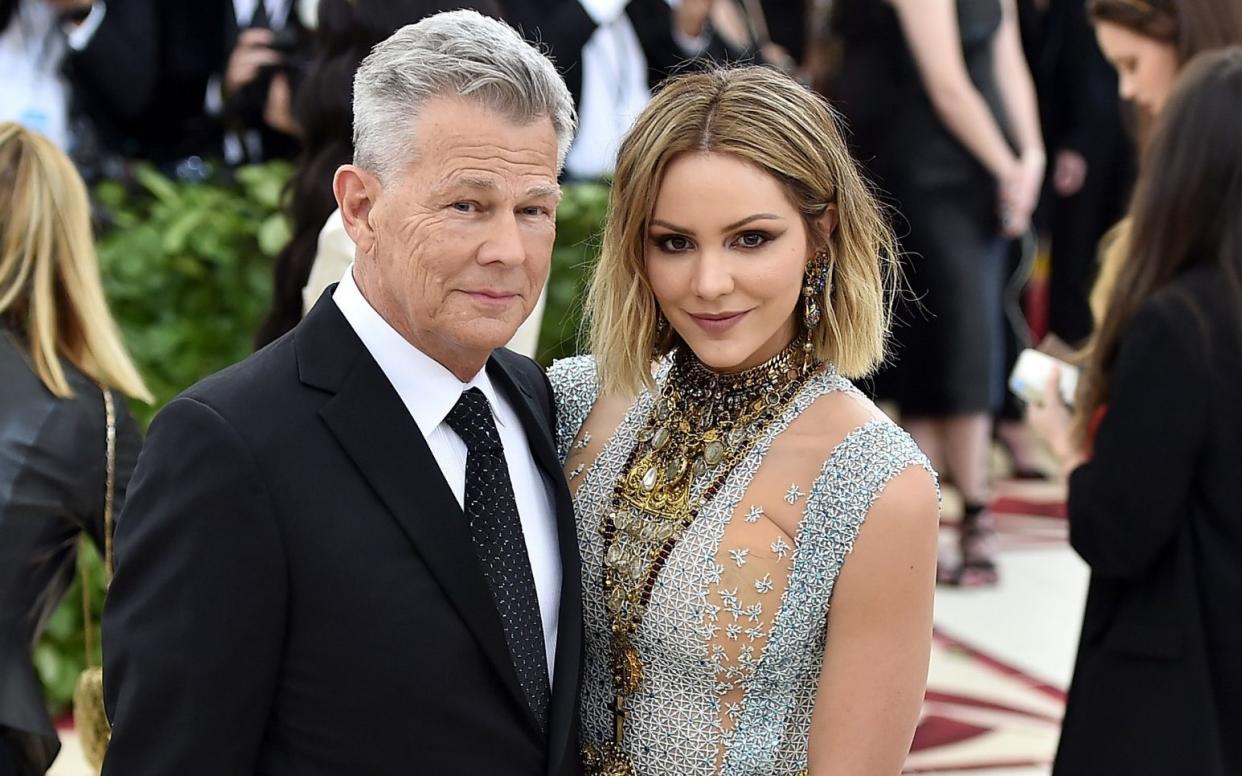
How do you make a Christmas album that isn’t a turkey? Let’s allow David Foster to explain. “The first secret, and it shouldn’t be a secret, is: don’t try to do a bunch of new songs!” says the musician, songwriter, arranger, performer, producer and record industry veteran with 14 Grammys over half-a-billion in record sales. “Because people don’t want to hear new songs. If I’m listening to the radio and some artist has written a new Christmas song: [sings listlessly] ‘the fireplace is lit, the stockings are hanging over the thing, we’re gonna go for a sleigh ride…’ – NO!” Foster shouts. “You can’t pull that off.”
Foster has produced seasonal albums for Andrea Bocelli, Kenny Rogers and Dolly Parton, Celine Dion, Rod Stewart, Mary J Blige, Josh Groban and, the festive daddy of them all, Michael Bublé. The Canadian crooner’s 2011 album Christmas is the second-best-selling festive album of all time in America (only beaten by the Vince Guaraldi Trio’s 1965 soundtrack A Charlie Brown Christmas). He’s also written Christmas songs for Barbra Streisand, Tom Jones, Johnny Mathis, Michael Bolton, Kelly Clarkson, Jessie J and Natalie Cole.
“Mariah and Walter A. nailed it,” says the 74-year-old, referring to Carey and Walter Afanasieff’s All I Want For Christmas Is You. He also gives George Michael the nod for Last Christmas.
“But otherwise, people want to hear the standards,” he continues. In a six-decade career, the Canadian has had a hand in minting dozens of new standards with discoveries and/or mentees such as Dion (largely best known in French-speaking Canada when he met her), Bublé (a Vancouver wedding singer) and Groban (a high school kid). Amongst myriad other mega-hits, Toni Braxton’s Un-Break My Heart, Whitney Houston’s I Will Always Will Love You, John Parr’s theme song to St Elmo’s Fire and Earth, Wind & Fire’s After The Love Has Gone are but four of his babies.
On Christmas Songs, his new album with wife Katharine McPhee – the singer who was runner-up on the fifth season of American Idol – Foster sticks to his seasonal script. The pair slalom between the sacred and the schmaltzy, from Amazing Grace and Away In A Manger to Santa Baby and Rudolph The Red-Nose Reindeer. Wait, though. How does he explain the inclusion of My Grown-Up Christmas List, which he wrote in 1989 with his last-but-one wife, Linda Thompson? That, relatively speaking, is a new song.
“Yeah, it’s sort of creeped into the culture. Not in the way that Mariah’s has, or Wham!’s,” he concedes, “but our song has been covered by a lot of people.” He’s not exaggerating: at a rough count there are 73 recorded versions out there, by everyone from Donny Osmond to John Barrowman via Aretha Franklin and Patti Labelle.
Foster speaks to me from his bed in a Chicago hotel suite. He’s been absent almost two-and-half months from the Los Angeles home he shares with McPhee, 39, his fifth wife, and their soon-to-be-three-years-old son Rennie, his sixth child (he has five daughters, ranging in age from 53 to 37).
What’s keeping him on the road is his latest big project. As he declared in the 2019 Netflix documentary David Foster: Off The Record, he was retired from producing albums but remained determined to conquer another Olympus of popular entertainment. Or, as he put it then: “I will drive myself into the ground trying to have a hit Broadway musical. And it may or may not happen. But it won’t be for lack of trying.”
Cue a stage musical about Betty Boop, built around songs co-written by Foster. The show opened in Chicago earlier this month, and he’s confident they’ll be in New York by spring. Now, he says to me, beaming, “I’m a man of my word. I said I was coming to Broadway!”
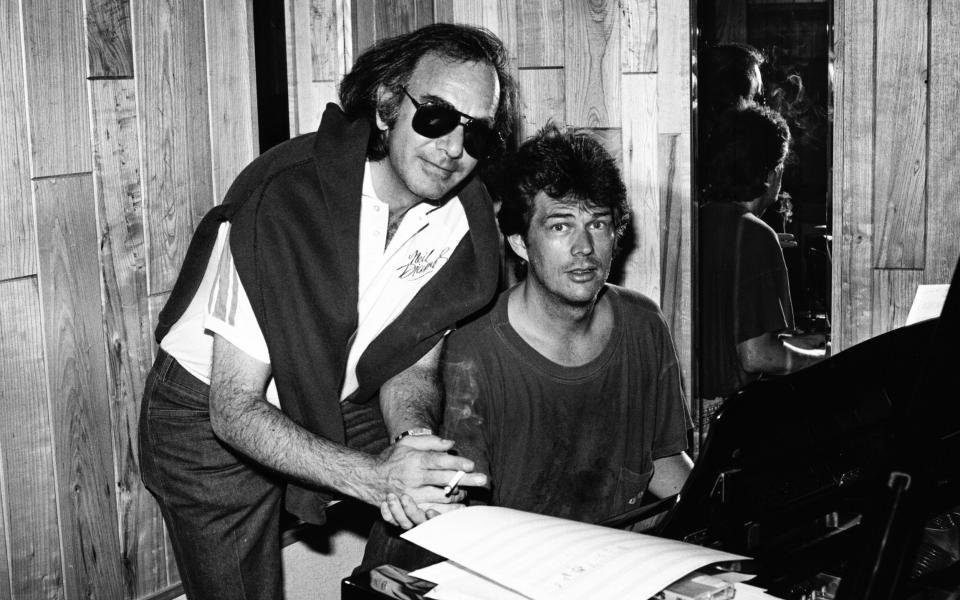
David Foster has lived quite a life, all the way back to leaving his home in British Columbia, aged 16, to go on the road as a member of Chuck Berry’s backing band. “Those were pretty crazy days,” he remembers. “Drugs and sex and rock’n’roll. And I was this virgin from Vancouver Island! I was like, Jesus, I couldn’t even comprehend what I was seeing.”
Stories of his insight into the magic of music-making are legion, but so are the ones about his doggedness and, occasionally, pig-headedness. Celine Dion, talking of how hard the perfectionist pushed her, says: “You just have to jump in… with him and trust him. You trust, or you leave.” During recording sessions in 1996, Dion trusted enough to agree to her producer’s request to hit an impossibly high note at the end of All By Myself – seven times, take after take after take. “It was one of the days [in the studio] when she really hated me, I know that,” Foster admits in Off The Record.
No less a tough cookie than Streisand recognises Foster’s carrot and stick approach to achieving studio greatness, saying that “David has a way of coaxing what he wants out of a singer”.
For some, the coaxing got too much. Hired in 1982 to work with Seventies rock old-stagers Chicago, Foster grabbed hold of not just the means of production but also the songwriting. This sowed division with the ranks of a band then onto their 13th album. Pushing a soft rock sound and new technology on the group left some members twiddling their thumbs as the producer drafted in session musicians. But Foster’s allying with singer Pete Cetera paid dividends: power ballad Hard To Say I’m Sorry, a Cetera/Foster co-write, was an era-defining smash and a US Number One (and Number Four in the UK). Still, even Foster admits that he was a “cocky, brash know-it-all” in his dealings with Chicago.
Three years later, Foster went toe-to-toe with Neil Young while producing Canada’s version of Do They Know It’s Christmas?, the all-star Tears Are Not Enough. Listening to Young in the studio, Foster informs him that he’s singing “a little flat”. Young, by way of smiling reply, said: “That’s my sound, man.”
There was another clash of the titans during the 1992 recording of I Will Always Love You, for the Whitney Houston film The Bodyguard. Clive Davis, then-boss of Houston’s record label, told me last year how Foster sent him a demo of his new arrangement of the Dolly Parton song.
“But every time he sent me a subsequent mix, it sounded slick,” said Davis. “The raw purity of that first mix, with the a capella [opening bars]… just haunted me. But David kept saying: ‘Just wait, I’m not done yet.’”
But, under pressure to release a single from the soundtrack, the executive “had to make a singular decision. And I decided to go with that first mix. And the initial reaction of David was quite severe. I don’t think there was a swear word that was left out dictionary. But to his credit, within 24 hours, he called me and said: ‘I deeply apologise, now that I’m calm in my home and now that I’m listening. You’re right. This is magic. Thank you.’”
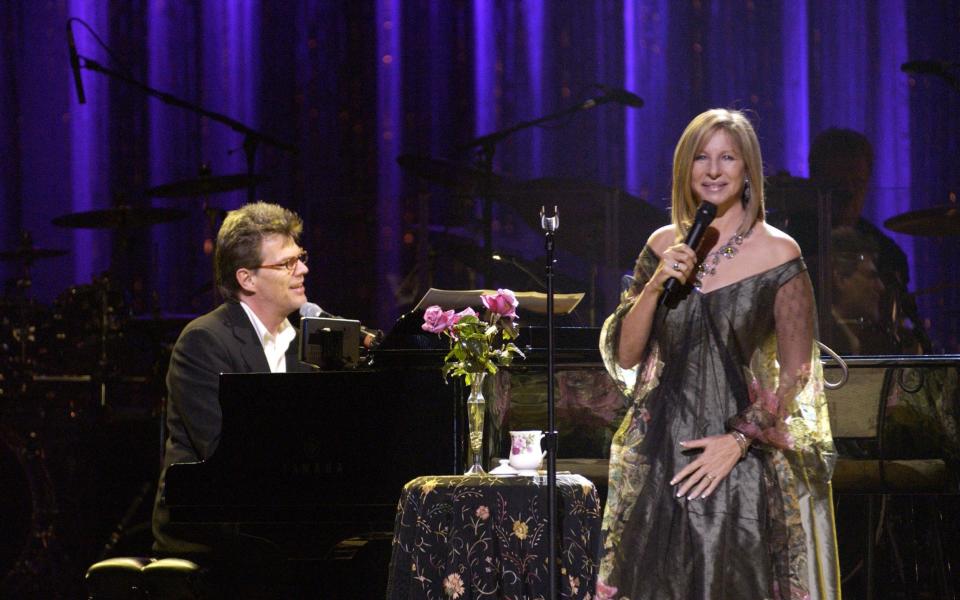
And that’s quite a life personally, too. Foster’s first wife B.J. Cook was a fellow member of Canadian band Skylark, with whom Foster had his first hit, 1972/3 US and Canadian Top 10 single Wildflower. His third wife was Thompson; she was previously married to the Olympic gold medal decathlete who later transitioned to Caitlyn Jenner. That union meant Foster became stepfather to Brandon and Brody Jenner, who lived on his Malibu estate, and he starred alongside them on 2005’s short-lived The Princes of Malibu, one of the earliest reality TV shows. Caitlyn, meanwhile, married Kris Kardashian, tying Foster – at one or two removes – to the Keeping Up with the Kardashians military-industrial-entertainment complex.
His fourth wife was Yolanda Hadid, which meant he became stepfather to her three children: models Gigi and Bella, and their brother Anwar. She starred in The Real Housewives of Beverly Hills, with Foster also appearing. They split in 2015. Then, in 2019, he married McPhee in London. Keeping up with Fosters so far?
Full disclosure: along the way, that baroque personal life also encompassed my own family. Foster became, for a period a couple of decades ago, step-grandfather to my eldest daughter. But while he admits, in Off The Record, that he was a “runner” in terms of his approach to his previous relationships, and that “I have been an asshole a lot”, I won’t disagree with his addendum that “I’m not a cold-hearted motherf_____” – he was only ever generous and kind to my daughter.
But how did a man who’s a musician first and foremost find his time in the A-list showbiz swirl? “I don’t really take myself that seriously,” he replies with a shrug. “When we did The Princes of Malibu, people were like: ‘Why are you gonna do that?’ I said: ‘Well, Stevie Wonder is not going to not work with me because I’m on a reality show.’ Not specifically Stevie,” he clarifies of someone with whom he has actually made three-quarters of an as-yet-unreleased album, “but just theoretically. In my own mind, I thought I was impervious to all that. So I just did it. It was a laugh. And I didn’t really give a shit.”
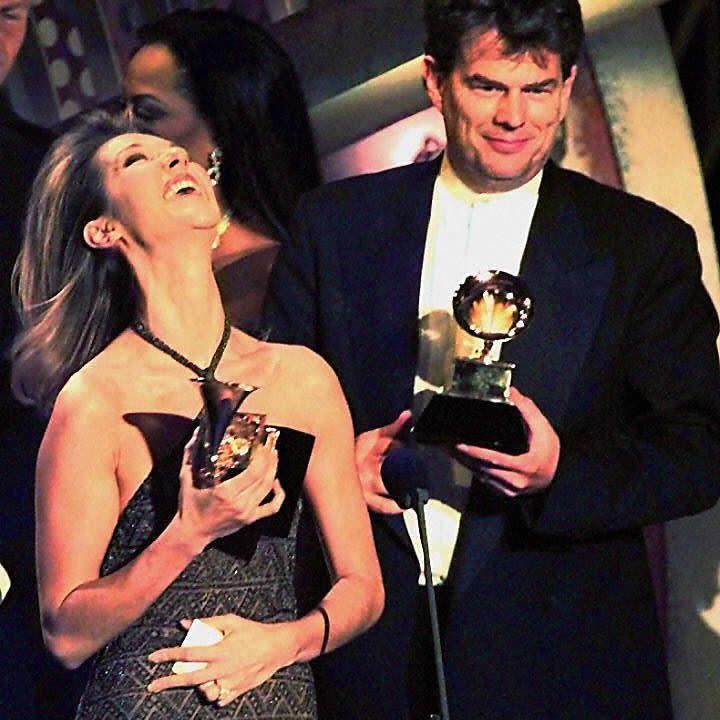
How did he get on with Gigi and Bella, two of the biggest celebrities in the world, fabulously wealthy and influential for a particular set of skills very different from those which have made Foster’s career?
“Fine. You know, I’ve juggled a few balls in my life. But I have pretty big shoulders.” As for he and Caitlyn’s relationship, “it’s excellent. In fact Caitlyn just texted me last week. She was asking what kind of piano she should buy for her house.”
He’s equally sanguine about the tenor of most reporting of he and McPhee’s relationship. When I ask if he thinks there’s ageism at play in the commentary about their 34-year age-gap, he’s firstly confused by the term “ageism”.
“Oh... Well, it’s certainly not the norm. And I get it. But what I hope is happening to us is: when Celine and René first got together…” he begins of the relationship between Dion and René Angélil, her late husband and manager, 26 years her senior, “…I started working with her when she was 19. Then when I found out that they were together, and she was maybe 20, and he was 45 or whatever the age gap – not quite as big an age-gap as us – it seemed weird for sure.

“But then: magically, being around them after year three, year four, year five and on into a decade, it just looks right. And I’m hoping that we just look right now. Because it’s been six years. It’s obviously not the norm,” he repeats. “But it really works for us.”
And, of course, just as he knows Christmas albums inside-out, Foster also knows complex family dynamics. “There’s so many things that can bring a marriage down. Money, infidelity, children, stepchildren. Age-difference is one of them. But it’s only one. So if you have all the other stuff together, and you’re not fighting about all that other stuff, then, yeah... I mean, it’s challenging in some areas for both of us. But marriage is challenging, period.”
The couple have learnt to take their licks. While on holiday in Hawaii in 2021, Foster made an approving comment on Instagram underneath a picture his bikini-clad wife. “She was looking incredible, as she always does, pregnant or not pregnant. And it was really innocent. I took a great picture of her and I was like [with the caption] ‘what baby?’
“[That was] because she had worked super-hard in the gym to get back into her pre-baby shape – out of choice. I didn’t realise that it would offend mothers that don’t bounce back that quick, even if they tried, or even if they don’t try. But it was an innocent thing that kind of got nutty. That bothered us. It bothered me.”
McPhee, though, leapt to her husband’s defence. Publicly, certainly. “Well, I mean, we had some discussion about it. We thought it was unfair to us. But then we started thinking about [how it read].”
All that said, he can’t wait for her birthday in March. “I’m so happy that she’s turning 40 in a couple of months, because then at least [I can say] ‘my wife’s in her forties!!’” he says cheerfully.
As well as Betty Boop, Foster has two other shows on the back burner: a jukebox musical based on his song catalogue, and a stage adaptation of Amy Bloom’s 2014 novel Lucky Us. But Broadway has broken, or bankrupted, many a megastar (take a bow, Paul Simon and U2) no matter how great their track record. With a young family, deep success and untold millions in the bank, why is Foster so committed to cracking the musical?
For one thing, he recognised “quite a while ago” that his time having Top 40 hits was gone. “I found great alternative things to do to stay semi-relevant and to stay in the mix – i.e., finding Josh Groban and Michael Bublé and working with Andrea Bocelli. Artists who didn’t necessarily have Top 40 hits, but they were relevant in a certain space. And we sold millions and millions and millions of records.”
He is, then, fully approving of the modern music industry. “I’m not that guy that complains about the business: [Oscar the Grouch voice] ‘Oh, the music business is terrible, I gotta get out,’” Foster says with a still-pronounced Canadian-accented “out”.
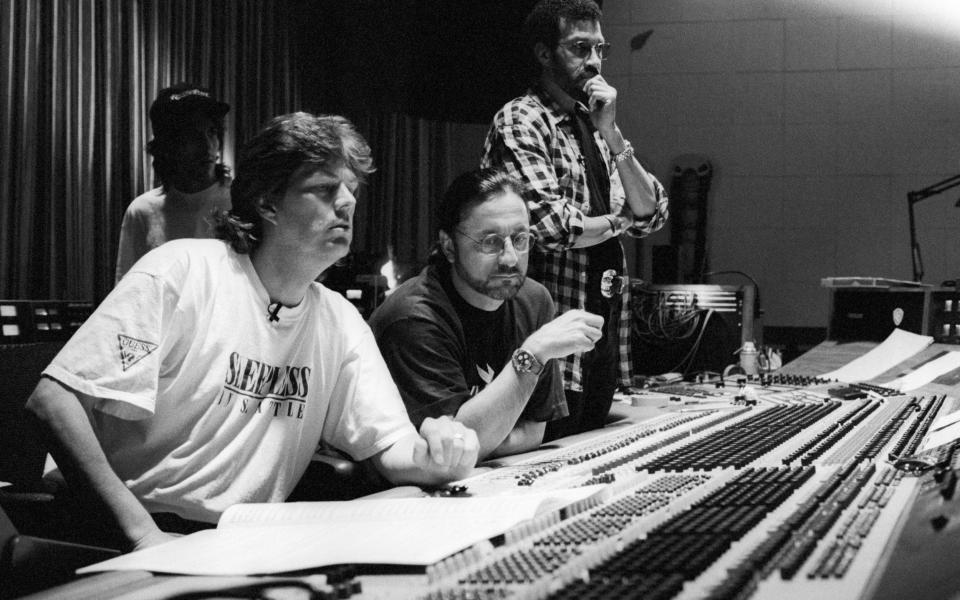
“No. The music business is amazing. If you talk to Taylor Swift or Drake or Post Malone, they think that music business is the greatest thing ever. They only know streaming. They think it’s fantastic. And I’m not going: ‘The music business back in the day was so amazing.’”
But seven years ago, after spending 40 years in windowless recording studios – he likens it to four decades in a submarine – he pivoted. He stopped producing but, his ambition undimmed, doubled down on performing. “I don’t want to retire, so I started touring more – I’m now touring with Kat, which is really a lot of fun,” he says of he and the missus’s An Intimate Evening With… double-act that regularly performs round the US.
“And then Broadway. Broadway is a place where I knew that you don’t have to write a Top 40 song. You just have to write a good song. I felt that I was still capable of writing a good song. Just maybe not one that teenagers would want to hear. Although, full circle, we see young people at Betty Boop. And they’re singing along with a song or two. So, who knows?”
Still, he admits he does keep “half an ear” out for new young talent like Groban, the “opera boy” Foster discovered when he was 17. And, as he says, he’s no grouch: he still sees era-defining great vocalists doing great work.
“In my world, and it’s not everybody’s world, I put Celine and Whitney at the top. I know that other people would rank them differently and have other choices. But for me, Adele would not be far behind them. Although I’ve never met her actually, never heard her on a mic. So I don’t know what it would be like [in the studio] – you can tell a lot when you start producing a singer. But I think she’s amazing. I would like to work with her.”
“Actually, he adds, “that would get me out of retirement.”

